Before you get started
What you will need
- A clean container without holes – like a washing-up bowl, a big plant pot, a bucket or even an old sink!
- Rainwater, or tap water that’s been standing outside for a few days
- Some gravel, pebbles and rocks
- A few pond plants. These are available from most garden centres. Flowering rush, marsh marigolds and hornwort are all good choices
- Branches and planks of wood
Method
Instructions
Dig a hole
Start off by picking a shady spot and digging a big hole for your container. Here, you can see kids from Devonshire Academy at the RSPCA’s Birmingham Education Centre doing the same.
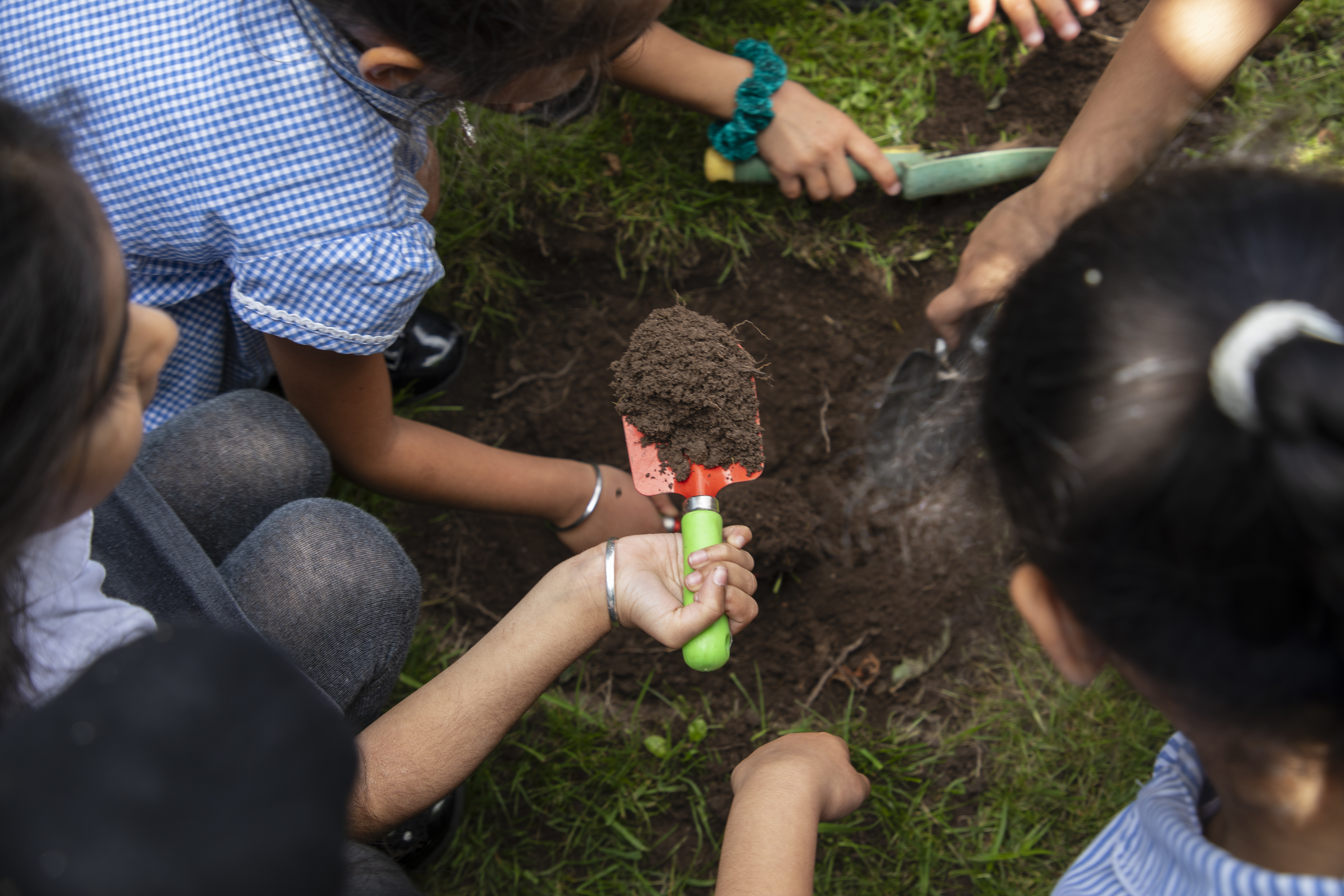
Add your container
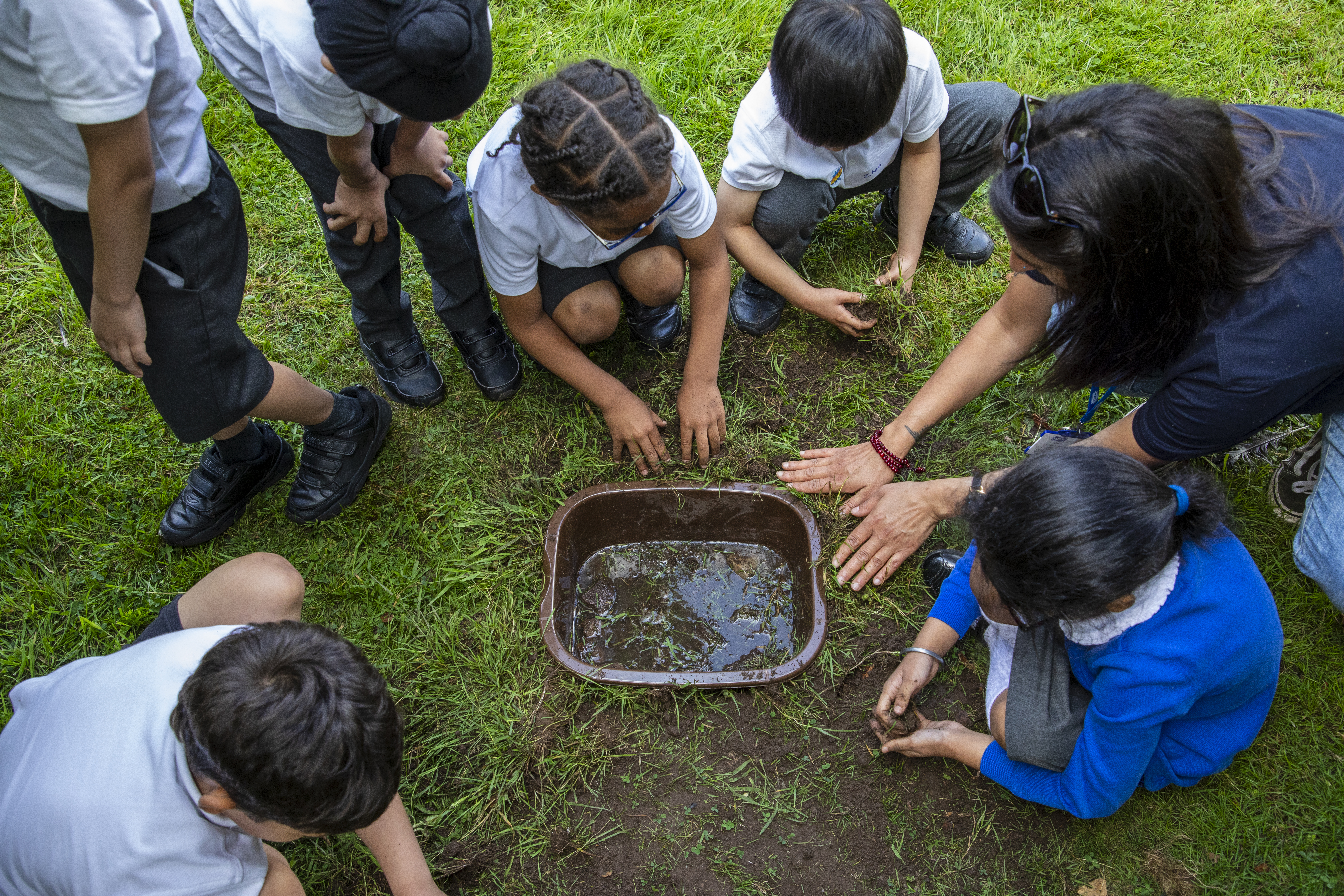
Add hiding places
Add in a layer of gravel, and a few stones and pebbles, so aquatic animals have places to hide.
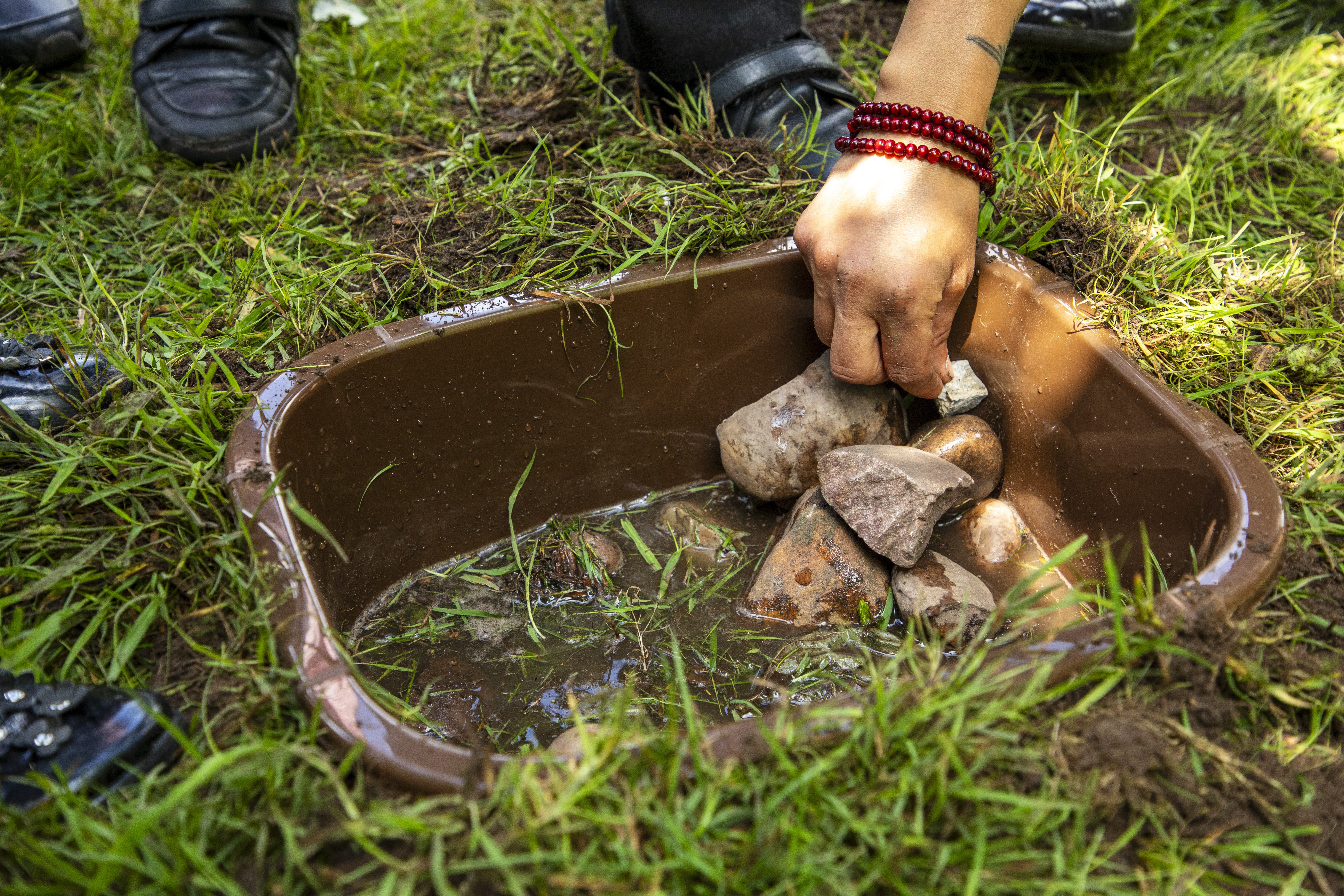
Build a slope
Make a pile of rocks and bricks to form a slope, from the bottom of the container to the top. This will help small animals (like hedgehogs) climb out if they fall in. Branches and planks make good safety ramps too.
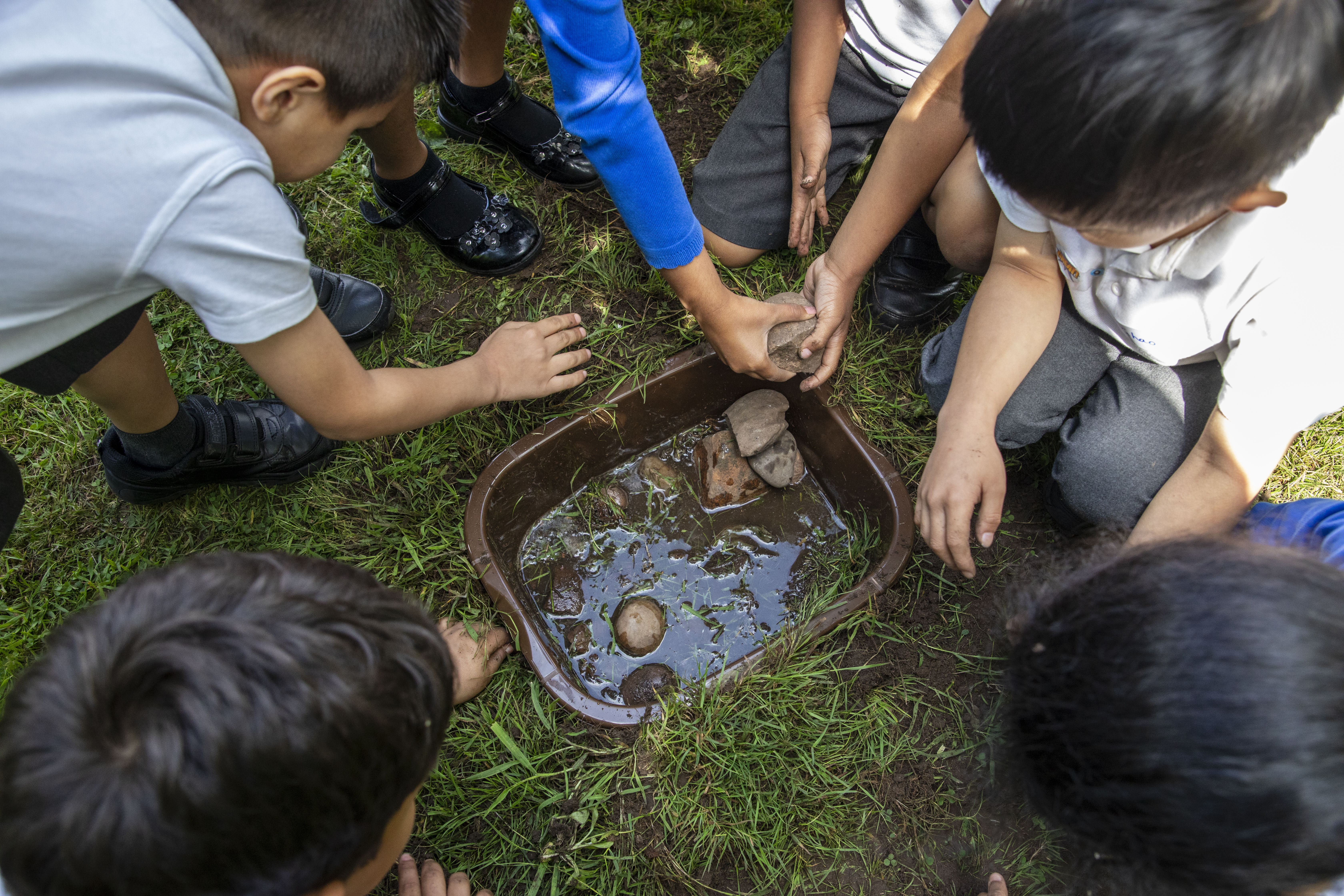
Add plants
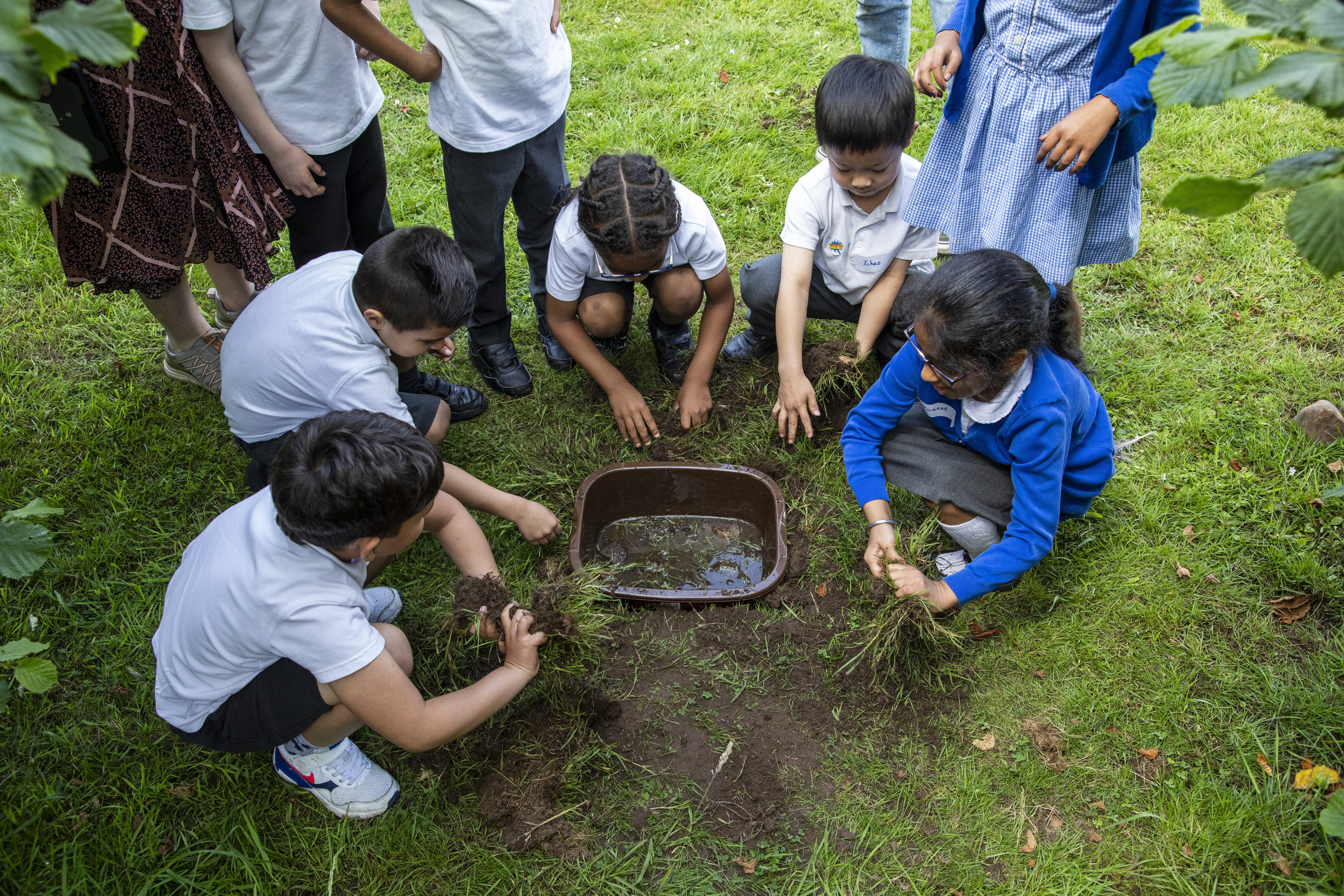
Fill with rainwater
Fill your container with rainwater, and wait!
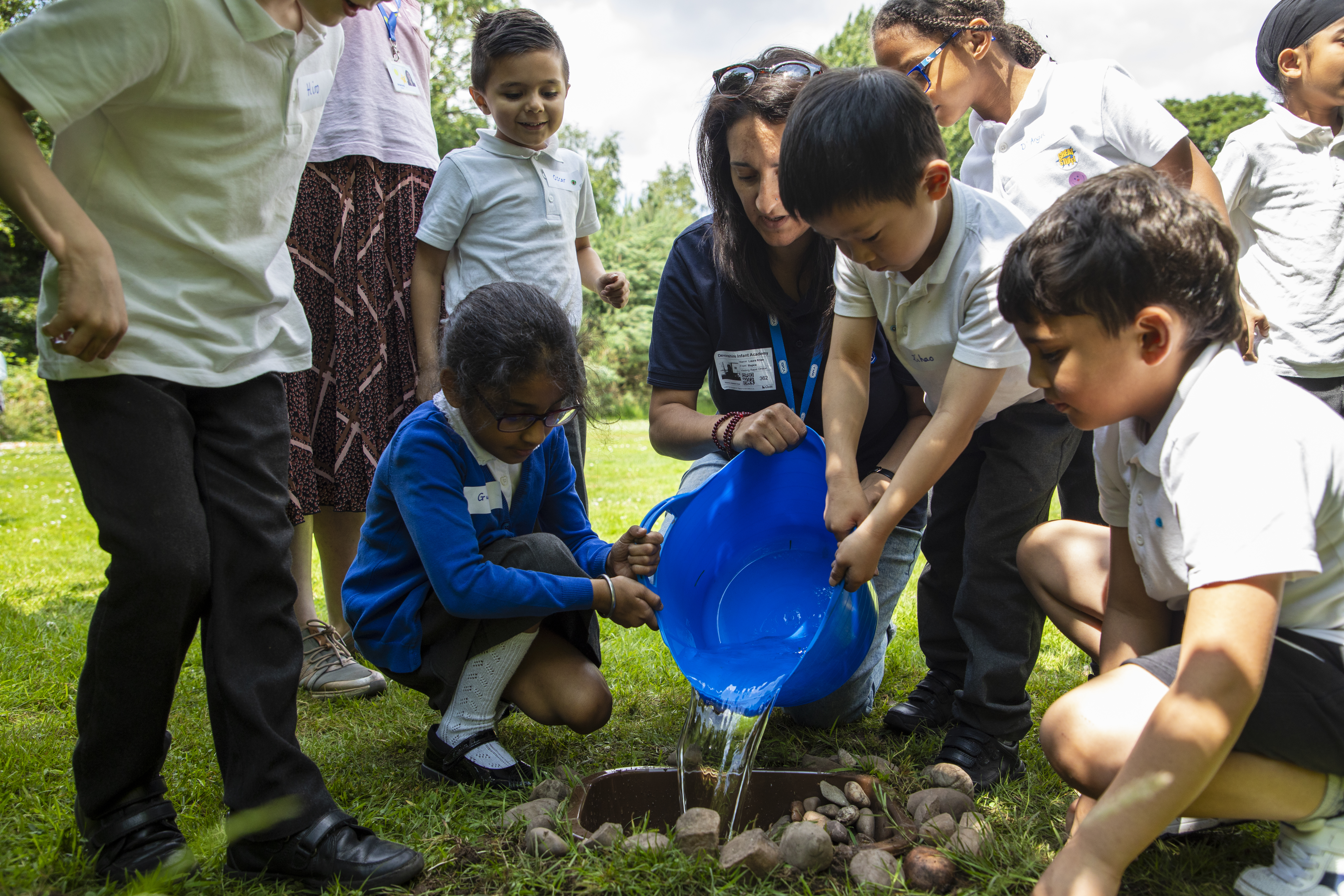
TOP TIP
It might take a few weeks until you see signs of life – adding some pond-friendly plants can help. Don’t be tempted to move animals from other ponds to yours. Just sit back, wait, and wildlife will soon start to move in!
How to look after your pond
- Top it up with rainwater if the levels look low.
- Make sure the underwater slope is still standing and check the safety ramps are still there.
- Scoop any rotting plants off the surface of the water. Leave them by the edge of the pond for a few days, so any small animals can escape.
Share your creations
If you had fun with this project, we’d love to see the end results! Send us a picture of your finished craft for a chance to appear on our online gallery.

